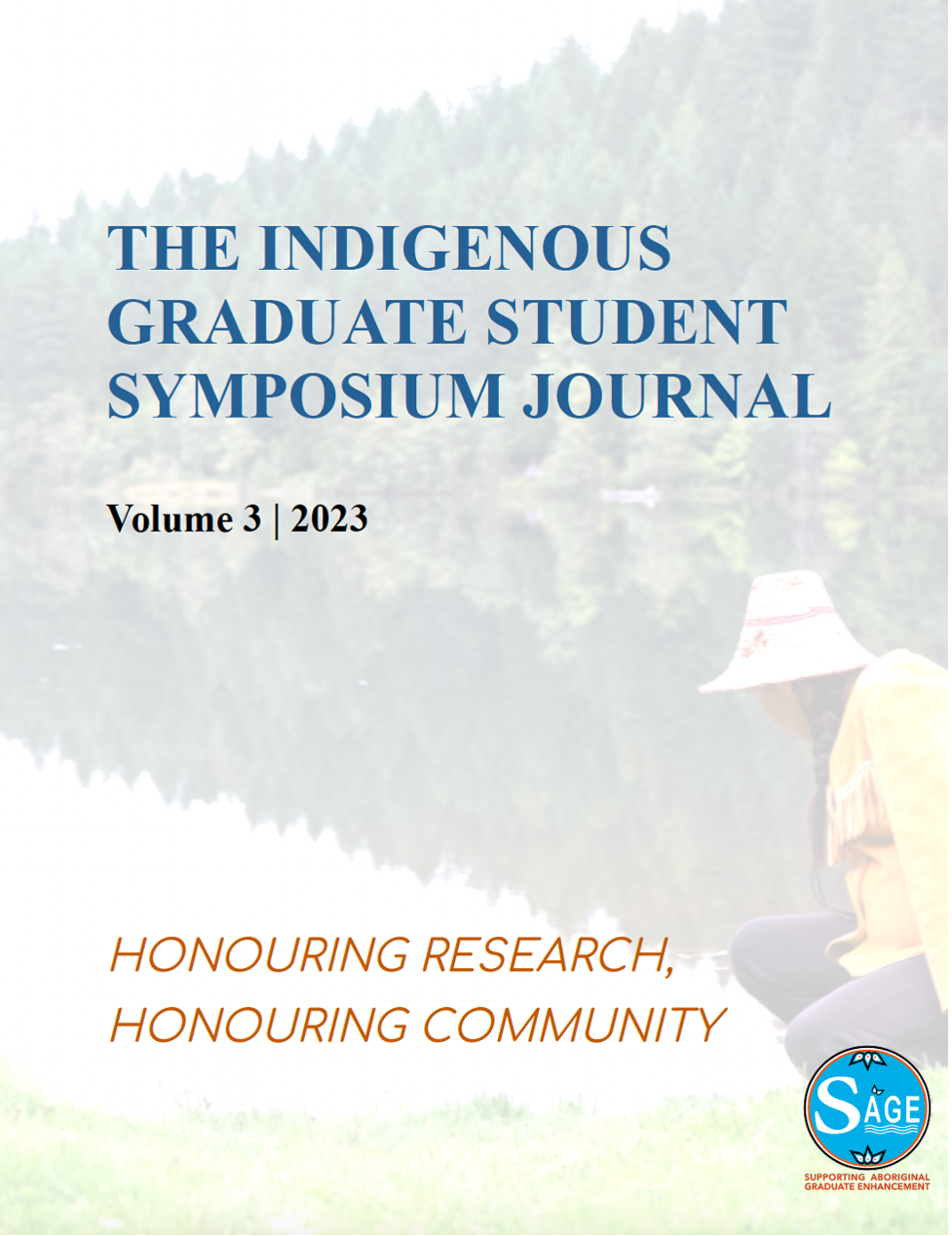Restful Reflection: Collaborative, Arts-Based Rest Practices as Decolonial Resistance
Main Article Content
Abstract
Following the calls from many anti-colonial scholars to reorient ourselves towards community and engage in decolonization, I seek to position rest as a mode of decolonial resistance to the biopolitical state built upon Indigenous genocide. Positioning rest as a way to respond to colonial biopower acknowledges the deeply exhausting ways the settler state has (historically and presently) attempted to subdue and annihilate our communities. From a Métis-feminist perspective, I will consider how collaborative, arts-based practices of rest can be a method of turning away from settler recognition to prioritize community needs and well-being.
I will begin with a brief analysis of how I see biopower as settler colonialism while bringing in anti-colonial critiques of biopower. Then, I will consider the call from these anti-colonial critiques to turn towards community as a way to resist biopower. Finally, utilizing Métis community sources alongside texts that theorize on rest, I shape how collaborative, arts-based practices of building community can be a method of resisting biopower through rest. Engaging in community acts of rest can unsettle the compulsion to appeal to settler desires because it provides room for regenerative reflection and reckoning. Symposium attendees will be invited to participate in a collaborative arts-based intervention into this presentation to see this argument in action and to reimagine what engagement means in a presentation about rest.
Article Details

This work is licensed under a Creative Commons Attribution-NonCommercial 4.0 International License.

